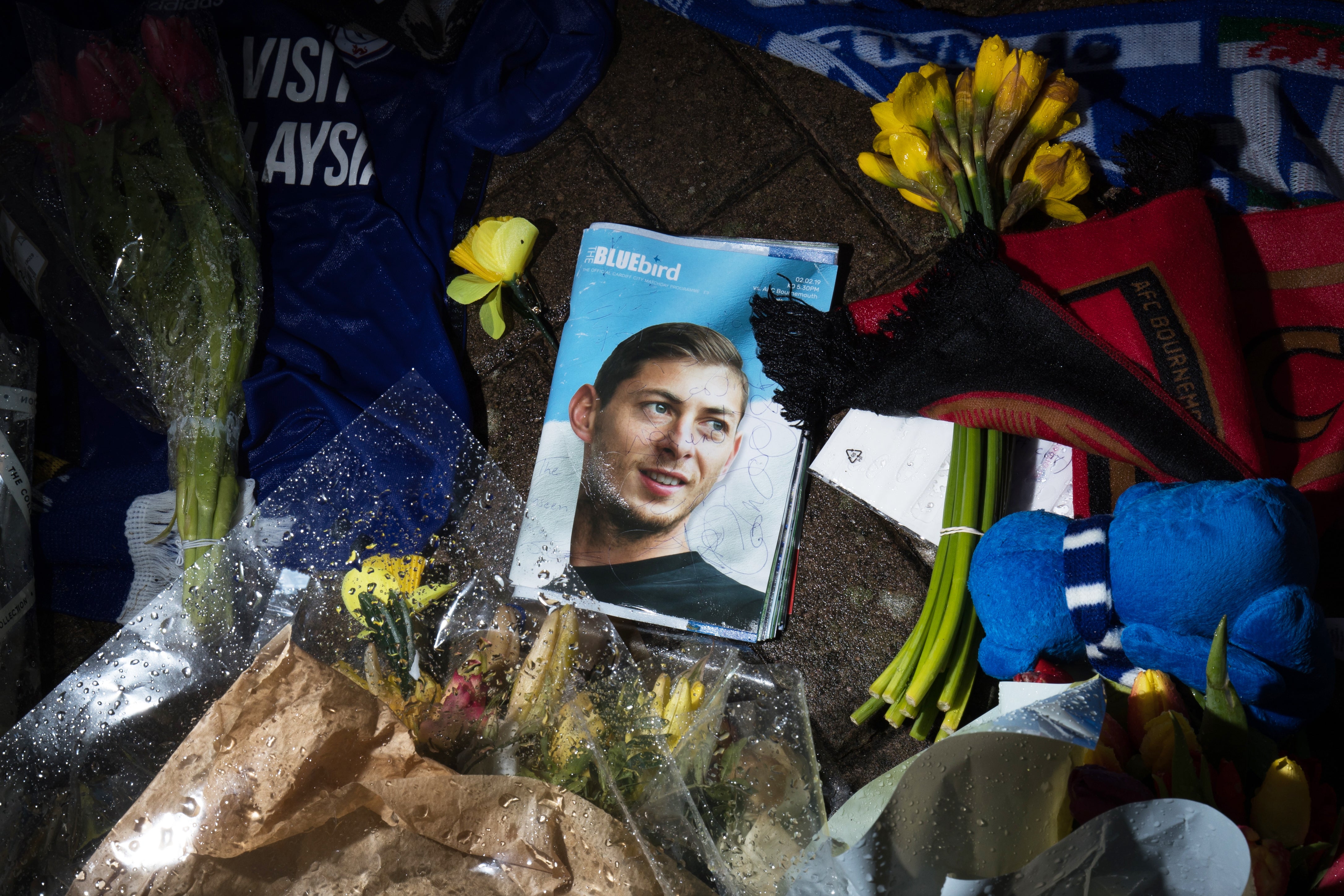Emiliano Sala overcome by carbon monoxide poisoning before death in plane crash, inquest hears
Cardiff City striker would have been ‘deeply unconscious’ at point of impact with sea, pathologist says

Your support helps us to tell the story
From reproductive rights to climate change to Big Tech, The Independent is on the ground when the story is developing. Whether it's investigating the financials of Elon Musk's pro-Trump PAC or producing our latest documentary, 'The A Word', which shines a light on the American women fighting for reproductive rights, we know how important it is to parse out the facts from the messaging.
At such a critical moment in US history, we need reporters on the ground. Your donation allows us to keep sending journalists to speak to both sides of the story.
The Independent is trusted by Americans across the entire political spectrum. And unlike many other quality news outlets, we choose not to lock Americans out of our reporting and analysis with paywalls. We believe quality journalism should be available to everyone, paid for by those who can afford it.
Your support makes all the difference.Blood tests show that Emiliano Sala was overcome by toxic levels of carbon monoxide poisoning prior to his death in a plane crash, an inquest heard.
The Argentinian-born footballer was travelling from Nantes to Wales, after signing a £15m transfer contract with Premier League club Cardiff City, when his plane crashed in the English Channel.
Last week, pathologist Dr Basil Purdue told a Dorset inquest into Sala’s death that the footballer had died from severe head and chest injuries consistent with a plane crash.
But prior to his death he had been overcome by carbon monoxide poisoning and would have been “deeply unconscious” at the point of impact with the sea, Dr Purdue said.
Toxicological tests on samples of the 28-year-old’s blood showed a carbon monoxide blood saturation level of 58 per cent, Dr Purdue said, which he described as “severe poisoning”.

He suggested the source was the plane’s exhaust system.
Pilot David Ibbotson, 59, was also killed in the crash on 21 January 2019, but his body has never been found.
Although tests cannot be carried out on Ibbotson, the government’s Air Accidents Investigation Branch said in August 2019 that it was “considered likely” that he was also exposed to similar carbon monoxide poisoning.
The finding could explain how Ibbotson lost control of the plane, given that one of the effects of carbon monoxide poisoning is a loss of consciousness.
Continuing his evidence, Dr Purdue said two blood samples were taken from Sala. The first was sent away for carbon monoxide testing and the second was used to confirm identity from DNA testing and was later sent to Canada for further tests.
Dr Purdue explained due to decomposition he was only able to take one blood sample from the iliofemoral vein and obtained blood for DNA testing from the cavity of Sala’s torso.

He said cavity blood was often contaminated and of “uncertain composition”, and could not be relied upon for toxicological examination, although it was acceptable for DNA testing.
“It is not blood, it is blood with an unknown of other things – you are going to be misled,” he said.
Sala’s body was in the process of decomposition when he carried out the post-mortem examination on 7 February, Dr Purdue said, adding: “If we had more blood, I would have taken more samples. The fact we only had one bottle is indicative of all we could get.”
Forensic examiner Katherine Baldwin told the inquest the cavity blood sample was stored in a Dorset Police freezer until it was sent off to Canada for testing, and confirmed that the first sample had been destroyed by a forensic lab after being tested – despite forming part of an ongoing investigation.
The hearing was also told Sala smoked between one and five cigarettes a day, with four packets of cigarettes found in a Christian Louboutin cloth shoe bag in his south Wales hotel room after his death.
Detective Sergeant Sarah Gedge, of Dorset Police, said: “Mr Sala had some property in the room and there was a request from Mr Sala's agent regarding the cigarettes in his room and he was keen for that not to be disclosed to his family as he had not told them he smoked.”
The officer also confirmed that Sala had completed a medical questionnaire as part of his transfer to Cardiff City in which he stated he did not smoke.
The inquest heard the Piper Malibu aircraft left Nantes airport for Cardiff at 7.15pm, but radar contact was lost an hour later near Guernsey. The plane was located on the seabed on 3 February and Sala’s body was found in the wreckage three days later.
The inquest is taking place at the Town Hall in Bournemouth and was adjourned for legal reasons last week before resuming on Tuesday. It is due to last around a month.
Additional reporting by PA


Join our commenting forum
Join thought-provoking conversations, follow other Independent readers and see their replies
Comments